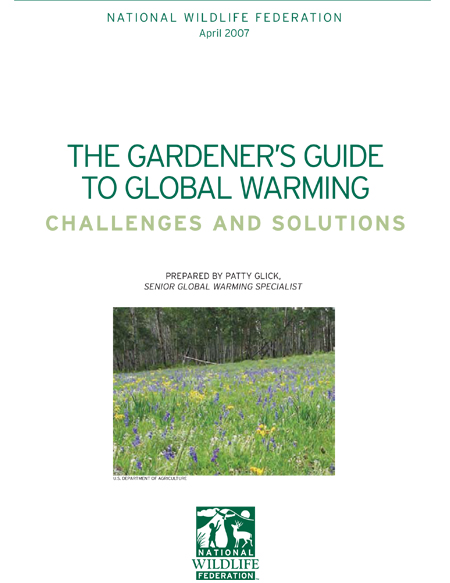The Gardener's Guide to Global Warming
- Patty Glick
- Apr 18, 2007

Among the efforts to reduce our impact on global warming like changing light bulbs, utilizing public transportation and recycling, we can also add gardening to the list according to this report entitled: The Gardener's Guide to Global Warming.
Some of the ideas presented like reducing pesticide use and removing non-native species are not new ideas in conservation and environmentally friendly gardening, but the threat of rising temperatures and climate change have made practices like this now pivotal in a warming world. The report suggests that gardeners can take action with techniques like: improving energy-efficiency; reducing water consumption; incorporating a diversity of native plants in your landscape; and composting.
In promoting activism, the report also highlights ways to get involved in voicing support for these actions in communities and makes suggestions for elected officials to implement sustainable, efficient gardening.
"Green" gardening practices would undoubtedly have a positive impact on the environment, as the report notes that in 2005 alone, an estimated 91 million US households participated in lawn and gardening activities, spending $35 billion.
America needs to take significant action to reduce global warming pollution, or else gardens across the country and world could face the following impacts:
- Plants are leafing out and blooming earlier.
- Birds and butterflies are breeding and migrating earlier, disrupting important pollinator-to-plant connections.
- Invasive, nonnative plants and animals are expanding because they are able to take advantage of weakened ecosystems and outcompete native species.
- Native and iconic plants may no longer find suitable climate conditions in major portions of their historic range.
Learn more:

The Gardener's Guide to Global Warming
Exploring the challenges gardeners face from global warming, and using your garden to be part of the climate solution.









